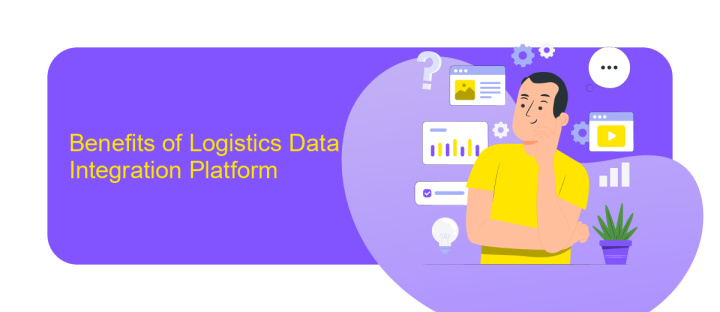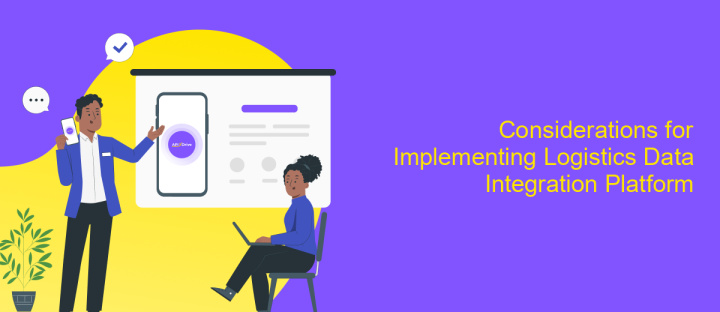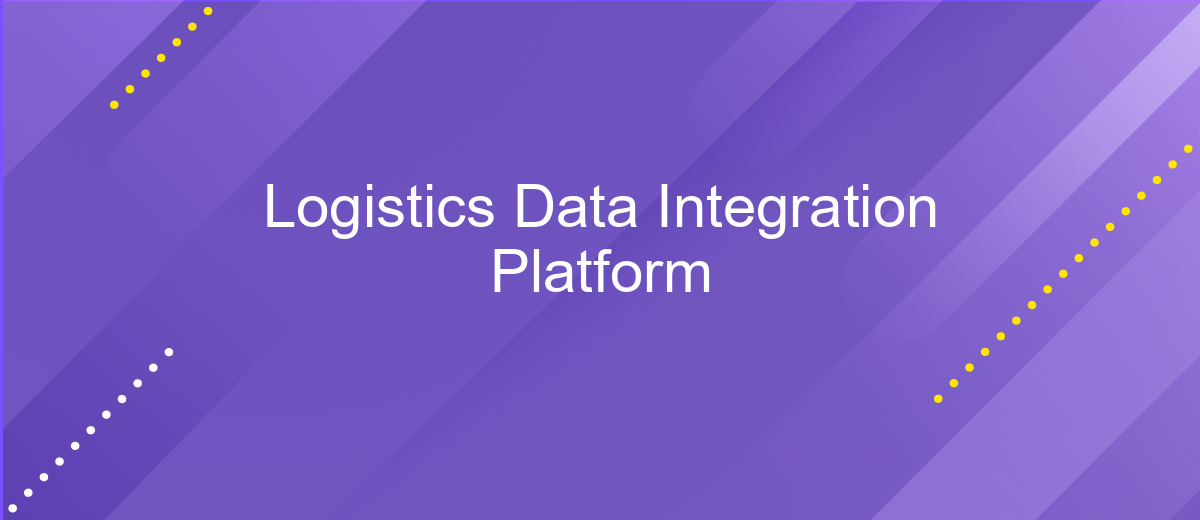Logistics Data Integration Platform
In today's fast-paced logistics industry, seamless data integration is crucial for optimizing supply chain efficiency. A Logistics Data Integration Platform serves as a centralized hub, enabling real-time data exchange between various systems and stakeholders. This platform not only enhances operational visibility but also drives informed decision-making, ultimately leading to cost savings and improved customer satisfaction. Discover how this technology transforms logistics management.
Introduction
In today's rapidly evolving logistics landscape, the integration of data from diverse sources is crucial for optimizing operations and enhancing decision-making processes. A Logistics Data Integration Platform (LDIP) serves as a centralized hub that consolidates, processes, and analyzes data from various logistics activities, enabling businesses to achieve greater efficiency and transparency.
- Streamlined data flow from multiple sources
- Enhanced visibility into logistics operations
- Improved decision-making capabilities
- Increased operational efficiency
- Real-time analytics and reporting
The implementation of an LDIP not only addresses the complexities of managing vast amounts of data but also provides actionable insights that drive strategic initiatives. By leveraging advanced technologies and robust data integration techniques, businesses can stay ahead of the competition and adapt to the dynamic demands of the logistics industry.
Benefits of Logistics Data Integration Platform

Logistics Data Integration Platforms significantly enhance operational efficiency by centralizing data from various sources. This integration allows for real-time tracking, better inventory management, and improved decision-making processes. By consolidating data into a single platform, companies can eliminate redundant tasks, reduce errors, and optimize resource allocation, leading to cost savings and increased productivity.
Moreover, platforms like ApiX-Drive offer seamless integration capabilities, enabling businesses to connect multiple systems and automate workflows effortlessly. This not only streamlines operations but also ensures data accuracy and consistency across all channels. With ApiX-Drive, companies can easily configure integrations without extensive technical expertise, making it accessible for businesses of all sizes. Ultimately, a Logistics Data Integration Platform empowers organizations to respond swiftly to market changes, enhance customer satisfaction, and gain a competitive edge in the industry.
Key Features of Logistics Data Integration Platform

Logistics Data Integration Platforms are essential tools that streamline and optimize the flow of information across various logistics systems. These platforms enhance operational efficiency, reduce costs, and improve decision-making through seamless data integration and real-time analytics.
- Real-Time Data Synchronization: Ensures that all systems involved in the logistics chain are updated simultaneously, reducing delays and errors.
- Scalability: Adapts to the growing needs of businesses, handling increased data volumes and more complex logistics operations.
- Data Security: Implements robust security measures to protect sensitive logistics information from unauthorized access and cyber threats.
- Customizable Dashboards: Provides user-friendly interfaces that allow stakeholders to visualize and analyze logistics data effectively.
- API Integration: Facilitates seamless communication between different software applications, enhancing interoperability and data flow.
By integrating these key features, Logistics Data Integration Platforms enable businesses to achieve greater transparency, efficiency, and control over their logistics operations. This leads to improved customer satisfaction and a competitive edge in the market.
Considerations for Implementing Logistics Data Integration Platform

When implementing a Logistics Data Integration Platform, several critical factors must be considered to ensure seamless integration and optimal performance. First and foremost, assess the current IT infrastructure to determine compatibility with the new platform. This evaluation helps identify any necessary upgrades or adjustments.
Another key consideration is data security. Given the sensitive nature of logistics data, robust security measures must be in place to protect against breaches and unauthorized access. Additionally, ensure compliance with relevant regulations and industry standards.
- Scalability: Choose a platform that can grow with your business needs.
- Interoperability: Ensure the platform can integrate with existing systems and third-party applications.
- User Training: Invest in comprehensive training programs for staff to maximize the platform's potential.
- Cost: Evaluate the total cost of ownership, including implementation, maintenance, and potential upgrades.
Finally, consider the vendor's support and service offerings. A reliable vendor will provide ongoing technical support and regular updates to keep the platform running smoothly. By carefully evaluating these factors, organizations can successfully implement a Logistics Data Integration Platform that enhances operational efficiency and data accuracy.
Conclusion
The implementation of a Logistics Data Integration Platform is a significant step towards enhancing operational efficiency and streamlining supply chain processes. By integrating disparate data sources, businesses can achieve real-time visibility, improved decision-making, and increased agility in response to market changes. The platform's ability to unify data from various logistics systems ensures that all stakeholders have access to accurate and up-to-date information, thereby reducing errors and optimizing resource allocation.
Moreover, utilizing services like ApiX-Drive can simplify the integration process, allowing for seamless connectivity between different applications and systems. ApiX-Drive's user-friendly interface and robust functionality make it an ideal choice for businesses looking to automate data synchronization without extensive technical expertise. Overall, the adoption of a Logistics Data Integration Platform, supported by efficient integration tools, can lead to substantial improvements in logistics operations, driving both cost savings and customer satisfaction.
FAQ
What is a Logistics Data Integration Platform?
How does a Logistics Data Integration Platform improve supply chain efficiency?
What types of data can be integrated using a Logistics Data Integration Platform?
How can businesses automate data integration in logistics?
What are the benefits of using a Logistics Data Integration Platform for small and medium-sized enterprises (SMEs)?
Do you want to achieve your goals in business, career and life faster and better? Do it with ApiX-Drive – a tool that will remove a significant part of the routine from workflows and free up additional time to achieve your goals. Test the capabilities of Apix-Drive for free – see for yourself the effectiveness of the tool.

